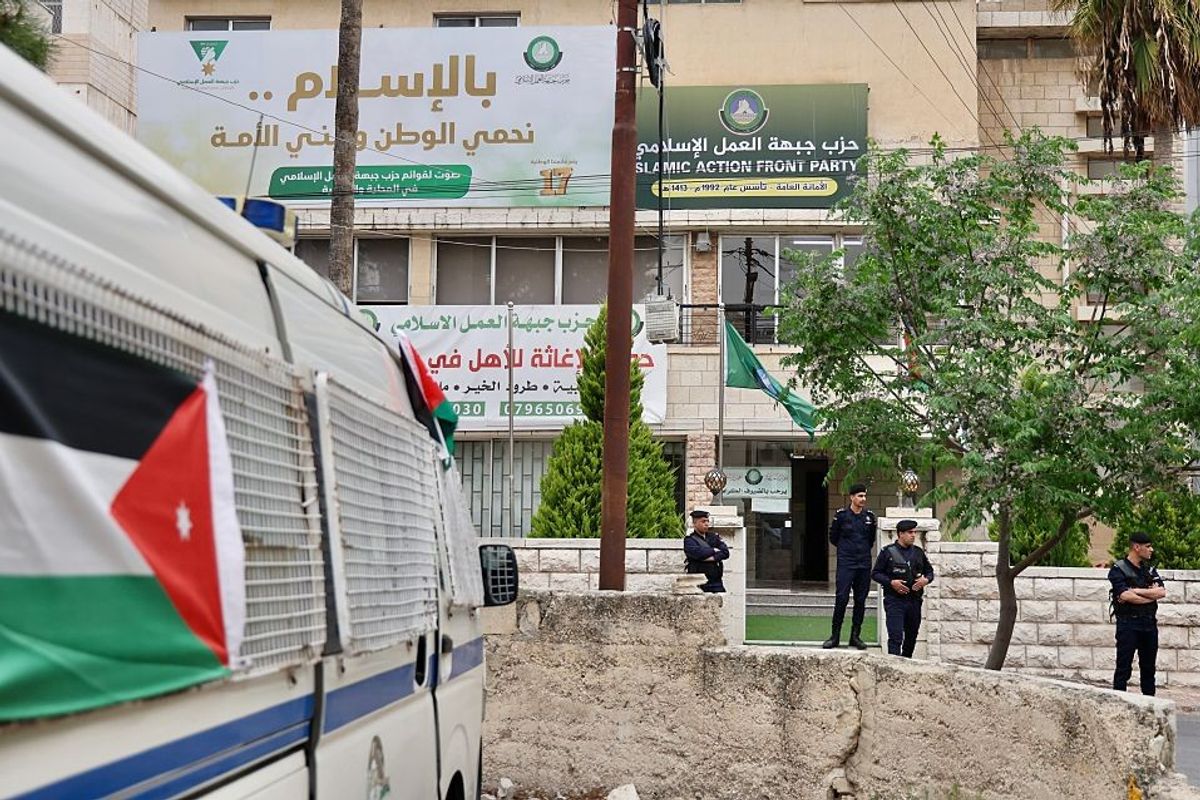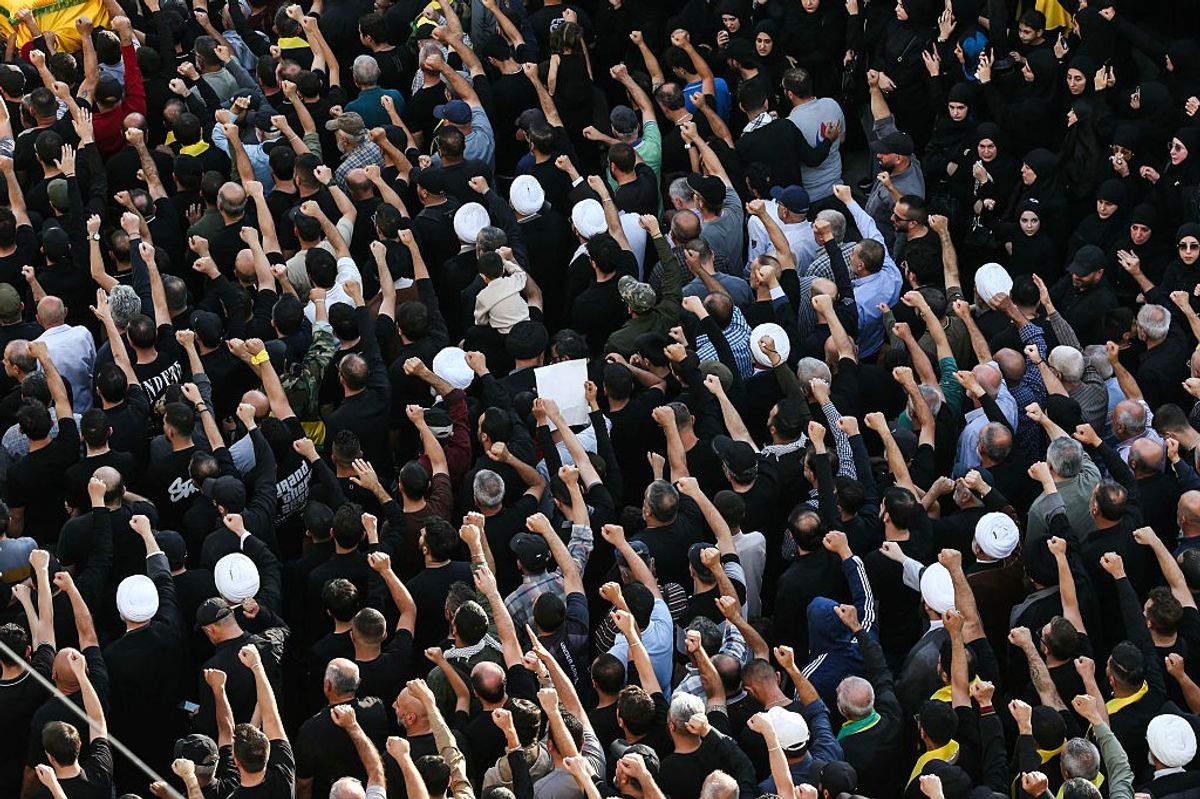EXPERT Q&A — The Cipher Brief turned to Ambassador Dennis Ross to discuss President Donald Trump’s proposal to “take over” Gaza, and the debate it has sparked about Gaza’s future. Ambassador Ross, a longtime Middle East negotiator who served as a special assistant to President Obama, said Trump’s call should provoke fresh thinking about how to actually go about the staggering task of the reconstruction of Gaza. “There are times when everyone is talking at such a level of generality that it's completely divorced from what you're going to do to make sure that the reality changes,” Ross said. “You can't just be critical of what Trump is saying and then not offer anything as a counter to it. If you care about the Palestinians, now's the time to be very practical.” Ross also noted the critical role the “Arab quint” nations of Egypt, Jordan, Saudi Arabia, the United Arab Emirates and Qatar will play in what comes next.
Ambassador Ross spoke with Cipher Brief contributing editor Elaine Shannon. Their conversation has been edited for length and clarity.
Shannon: What do you think is going to happen in Gaza now – and is there some utility to the debate that President Trump has stirred up about what should happen to this territory and to the people who have lived there?
Ambassador Ross: The Trump call for relocation takes on the conventional wisdoms about this conflict, which is that you can't talk about things like relocation. It puts Arabs in a position where they can't look like they're betraying the Palestinian national cause, which relocation seems to call into question. It seems to raise the issue of, Are Palestinians supposed to move someplace else and give up their hold on what is part of their historic homeland?
But that's not, I think, what has driven President Trump in making the proposal. His whole experience is in real estate and building, and that's the same for his negotiator, Steve Witkoff, who was in Gaza, flew over it, was at the Netzarim Corridor, and what he saw is the reality of an area that is completely devastated. The question I think that he and President Trump have is, given the scope of the devastation, how do you contend with that if it's at the same time heavily populated?
So this wasn't a judgment that "Boy, we're going to present something as a way of ending the Palestinian problem. We're walking away from two states." No, this wasn't a political statement. This was, in his mind, a common-sense statement.
Now, we've also seen that President Trump doesn't mind upsetting the apple cart. He doesn't mind coming with, how should we say it, a very strong demand. He is certainly hearing from the Egyptians, Jordanians, the Saudis, the Emiratis and the Qataris that this is not something that they can accept because it goes too much against the narrative in the region. But his approach to them should be, OK, if you don't like what I've offered, come with something that's realistic. Come with an approach on reconstruction. Come with an approach on the day-after administration in Gaza that doesn't leave Hamas in power and makes reconstruction possible. Don't come with a declaration we're going to have a donor's conference, or let's commit to two states. These are slogans. They bear no relationship to how you're going to change the realities on the ground in Gaza.
To be fair, the Jordanians already have field hospitals in Gaza. They can extend the security perimeter around it. Egypt obviously is the key to everything that comes in and out of Gaza. The Saudis and the Emiratis have made it clear they are prepared to commit to a stabilization force, and to be part of it. There’s an Arab quint, which is Egypt, Jordan, Saudi Arabia, the Emirates and Qatar. What they should do is they should come up with a common approach and even lay out a division of labor among them — who will do what, and how that will contribute to what comes next in Gaza.
The more practical that approach, the less it's geared towards general statements, [the better.] Here's what we're going to do in terms of bringing security contractors in to make sure humanitarian assistance gets securely distributed to the people who need it; here's what we're prepared to do in terms of helping set up a transitional administration for Gaza without Hamas, because we understand there's no reconstruction if Hamas is still in control; here's what we're prepared to do in terms of resuming commercial activity there; here's what we're prepared to do in terms of rehabilitating some of the infrastructure.
And they can say to President Trump, "Here are the things you could do to make it easier for us to take those steps." Now you're talking about an important dialogue that actually offers to change the reality and isn't just an exchange of platitudes back and forth.
Everyone needs a good nightcap. Ours happens to come in the form of a M-F newsletter that provides the best way to unwind while staying up to speed on national security. (And this Nightcap promises no hangover or weight gain.) Sign up today.
Shannon: So you're saying there's some utility for Trump to have said what he said? Am I reading that right?
Amb. Ross: You are reading it right. Is it something that I would've proposed? No. But having said that, there are times when everyone is talking at such a level of generality that it's completely divorced from what you're going to do to make sure that the reality changes.
He puts something out there. OK, it's not something that the Arabs can do, because they will fear a backlash against their regimes if it looks like they're walking away from the Palestinians and the Palestinians having a homeland. But by the same token, they can’t have it both ways. You can't just be critical of what Trump is saying and then not offer anything as a counter to it. If you care about the Palestinians, now's the time to be very practical. This is not the time to focus on grand political horizons, which no one can act on anytime soon anyway.
I'm not saying you give up the idea of a horizon, because it always helps to have a direction for where you're going. But if that's your focus, you're never going to get there because it's completely divorced from what's happening on the ground. It's completely divorced from what actually needs to be done right now.
Now, if [Trump] wants to have Saudi normalization with Israel, he will have to be clear that he will not allow the Israelis to go ahead and annex the West Bank. Recall in 2020, what was the formula of the Emirates, who were the key to getting the Abraham Accords? You get normalization, but you don't get annexation. If you want annexation, you'll have no normalization. The Saudis are not going to offer less than that or want less than that. That's the baseline for them.
Given what the president wants to do, and because his real strategic objective is Saudi normalization with Israel, the steps he takes now can affect that and there will be things he will have to require of Bibi [Netanyahu]. What he requires of Bibi is, don't take steps on the ground to preclude the Palestinian state.
So there are obligations on all sides. On the Arab side, President Trump should use what he said to draw them out on practical approaches. And then he needs to be prepared to lean on Prime Minister Netanyahu not to give in to those in the right wing of his cabinet, who leaped at what President Trump said and are saying, "Let's now go ahead and annex the West Bank." Well, now's the moment to be saying, "You annex the West Bank, we're out of business. And don't assume if we're out of business, we're suddenly going to be embracing everything you want."
The intersection of technology, defense, space and intelligence is critical to future U.S. national security. Join The Cipher Brief on June 5th and 6th in Austin, Texas for the NatSecEDGE conference. Find out how to get an invitation to this invite-only event at natsecedge.com
Shannon: What has been tried before and has failed in Gaza?
Amb. Ross: The problem isn't Gaza. The approach to building Gaza was always, what I would say, on the margins. It was never focused on how we're going to do reconstruction.
The fact is we should have been presiding over an approach that was also emphasizing practical approaches to construction. We should have been heavily focused on stopping smuggling. This is what allowed Hamas to build nearly 400 miles of tunnels.
The fact is, Hamas took over with a coup in 2007. The approach that was adopted by every administration since that time seemed logical, which was to create a set of conditions for if Hamas wants to be recognized politically — they would have to give up their insistence on resistance, they have to give up the fight against Israel. In other words, they had to give up their identity, which they weren't going to do. But Palestinians needed to know that if you want a future, here's what Hamas will cost you. We should have been focused from that standpoint more practically even on that.
The challenge in Gaza, again, is that you have an area that has an extremely dense population. You have an area without a lot of natural resources. You do have an area right along the Mediterranean with beaches, but you also have 50% of the population living in refugee camps. If we want people to have a future, they also have to begin to see themselves as something other than refugees. If they want to be part of a Palestinian state, they have to see themselves as committed to building a state from the ground up with institutions. We do not want a failed Palestinian state.
I'm a deep believer in a Palestinian state. The Palestinians are a people. Their national aspirations should be recognized as a people. But what goes with that recognition is also the responsibilities they have. Carrying out reform, so it's not a failed state. Ending the idea that the premise of the Palestinians is resistance, not coexistence. We should have been insisting on that all along. And then when it comes to what we were going to do with regard to building Gaza, we should have taken a more collective approach. It shouldn't have been just on us. What else could we have gotten Arab states to do? Especially because they want us to help deliver a Palestinian state. Well, what are they going to do to help deliver a Palestinian state? It can't just be on us.
There is also an interesting contradiction here on the issue of USAID [the U.S. Agency for International Development]. AID has played a major role in Gaza, and one of the things, if I were the Arabs coming and speaking to the president, I would say, "Okay, what are you going to do on bomb disposal in Gaza? What are you going to do in terms of getting electricity and water up and running? What are you going to do as it relates to rebuilding roads? We'll work with you, but what are you going to do?"
We don't have answers to any of that. We have a very broad concept, but we don't have a clear picture of what we're going to do. That certainly puts the Arabs in a position where they have a right to ask certain questions about how are we going to approach this practically. We have to get the Arabs to come here and not focus on platitudes, not focus on slogans, but they have a right to ask us, "OK, what are you going to do practically?"
The Cipher Brief is committed to publishing a range of perspectives on national security issues submitted by deeply experienced national security professionals. Opinions expressed are those of the author and do not represent the views or opinions of The Cipher Brief.
Have a perspective to share based on your experience in the national security field? Send it to Editor@thecipherbrief.com for publication consideration.
Read more expert-driven national security insights, perspective and analysis in The Cipher Brief














